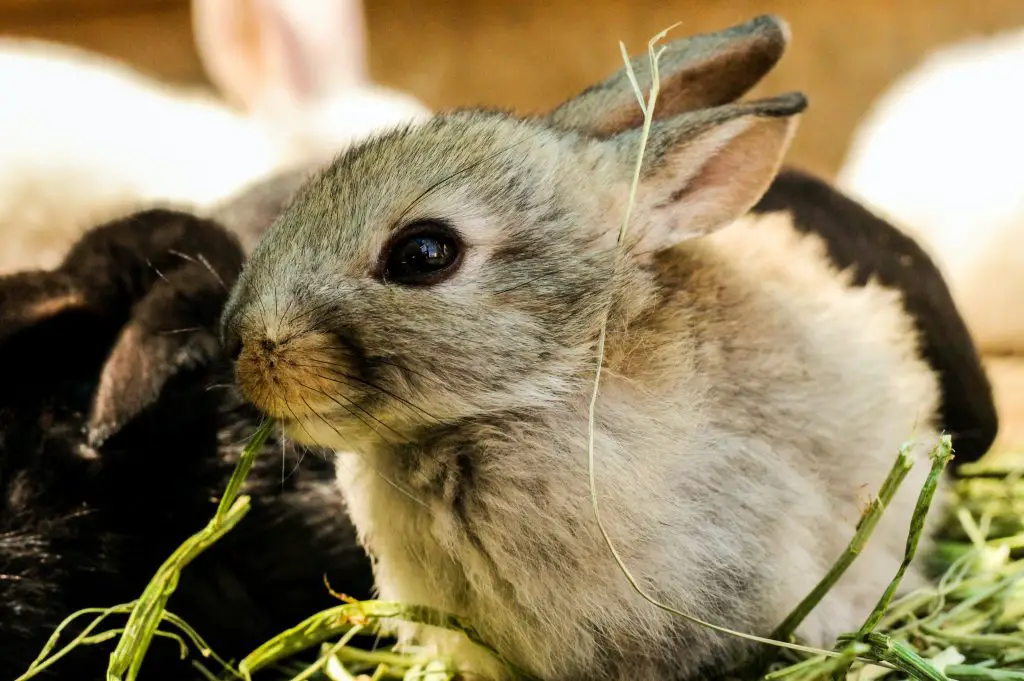Last Updated on September 30, 2022
The giant rabbit is a creature that has fascinated humans for centuries. Many people are curious about how long do flemish giant rabbits live. Flemish giant rabbits are mostly known for their long lifespan. Many believe they may live up to 10 years, but this is definitely not the case. Giant rabbits typically live around 5-7 years. The longevity of giant rabbits is likely due to their healthy diet and lack of infectious diseases.
So go through this article to know about the Flemish giant rabbit, which is considered to be the world’s largest rabbit, and its long life.
How Long Do Flemish Giant Rabbits Live?
A large number of experts agree that flemish giant rabbits can live up to 10 years. Some believe that even longer lives are possible, but these days it is hard to find conclusive proof. All we know for sure is that these animals have a long lifespan and can be very active.

What Is The Lifespan Of the Flemish Giant Rabbit?
In the past, scientists have been unsure of the lifespan of giant rabbits. However, recent research has clarified that the lifespan for giant rabbits is anywhere from 10 to 18 years.
This is a significant difference from other rabbit species that typically have lifespans of only 3 to 5 years. The lifespan of giant rabbits is likely due to their large body size and their advanced sexual development.
Population Size
The population size of giant rabbits is thought to be in the thousands. Giant rabbits are found all around the world, but they are most common in Central Asia and Europe. The rabbits are known for their large size and long fur, and they can get up to 18 inches tall at the shoulder.
Habitat
Giant rabbits are found in many wild habitats across the world. Some of these habitats are very rocky, such as the Rocky Mountains, while others are more developed, such as the Amazon rainforest. Giant rabbits are known to live in small groups and to use different types of terrain for cover.
Diet
Giant rabbits are popular meat and milk animal in many parts of the world. They are very large for a rabbit, and their diet consists mostly of hay, vegetables, and fruits. Some people believe that the diet of giant rabbits is too high in protein, which can lead to health problems.
Genetics
Giant rabbits are a special breed of rabbits that are much larger than regular rabbits. These large rabbits can weigh up to two pounds and can be as tall as five feet.
These giant rabbits have a number of unique features that make them very interesting to study. One of the most interesting things about giant rabbits is their genetics. This means that they inherit certain traits from their parents, which can affect how they look, act, and behave.
Disease
The disease of the Giant rabbit is a problem that is becoming increasingly common. The disease, which affects these large animals, is caused by a fungus that deposits saprophytes on their fur. These saprophytes can cause serious health problems for the giant rabbits.
Death
Giant rabbits are becoming a rarity in the wild, and as their populations dwindle, so do their chances of survival. A recent study has found that the death of these animals is due to a lack of food and shelter, not natural predators or diseases.
Do Flemish Giant Rabbits Have Health Problems?
Rabbits are known for their large size and healthy fur, but some experts are beginning to wonder if they have health problems that go beyond their regular size.
The Flemish Giant Rabbit is a large rabbit that is often considered one of the largest rabbits in the world. However, recent studies have shown that this rabbit may have health problems that go beyond their regular size.
Some experts believe that the Flemish Giant Rabbit may have a problem with its heart rate, which can be high when it’s inactive. Additionally, the Flemish Giant Rabbit may also have a problem with its skin, which can be thin and flabby.
Do Larger Rabbits Have Shorter Lifespans?
There is some debate over whether or not larger rabbits have shorter lifespans than smaller rabbits. Some believe that because larger rabbits have higher body weight, they may have shorter lives overall.
They suggest that because of their size and weight, larger rabbits may be more susceptible to heart disease and other health issues. Additionally, they may not be able to digest as well, which could lead to problems such as obesity or pancreatitis.
Others find that the size of a rabbit does not always correlate with its lifespan. Larger rabbits often live longer than smaller ones, but this does not mean they have shorter lifespans.
What Do Flemish Giant Rabbits Eat?
In Flanders, giant rabbits are known as hagros. These large, furry creatures feed on a variety of plants and animals, including small deer, hares, and other small mammals. They can reach weights of up to 2.5 kg (4.4 pounds), making them one of the bigger rabbits around.
The rabbits are very active and can run up to 30 mph. They also have long fur which protects them from the cold weather. They eat mostly plants, but they also eat small animals.
How Can You Help Your Flemish Giant Rabbit Live Longer?
There are many ways to help your Flemish giant rabbit live longer, and many of these can be done without any special knowledge or skills. Here are a few tips to help you get started:
1. Feed your rabbit plenty of fresh vegetables and fruits. These will help to keep him healthy and content, and will also give him the nutrients he needs to live a long life.
2. Keep him warm and dry. Flemish giant rabbits love the sun, so making sure they have a warm place to rest is important if you want them to stay healthy for years to come!
3. Spend time with him. This is an important part of his life, and should be spent as much as possible together! Spending time with your furry friend will help him feel loved and comfortable, which in turn will encourage him to live a longer life.
Conclusion
You have got to know how long flemish giant rabbits live by reading this article. Giant rabbits can live anywhere from 10 to 12 years. It is important to be aware of their habits and precautions when taking care of them, as they can be very rebellious if left alone for too long.







